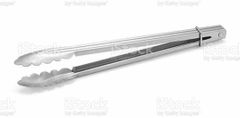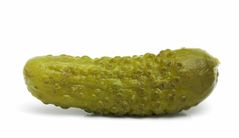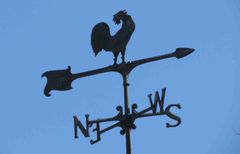![]()
![]()
![]()
Use LEFT and RIGHT arrow keys to navigate between flashcards;
Use UP and DOWN arrow keys to flip the card;
H to show hint;
A reads text to speech;
73 Cards in this Set
- Front
- Back
|
Prohibit |
Verb To officially refuse to allow something: Motor vehicles are prohibited from driving in the town centre. The government introduced a law prohibiting tobacco advertisements on TV. Parking is strictly prohibited between these gates |
|
|
Mortgage |
Noun A legal agreement that allows you to borrow money from a bank, especially in order to buy a house, They took out a £400,000 mortgage (= they borrowed £400,000) to buy the house. |
|
|
Hasten |
To make something happen sooner or more quickly: There is little doubt that poor medical treatment hastened her death. These recent poor results have hastened the manager's departure. |
|
|
Apostle |
Noun Someone who strongly supports a particular belief or political movement: An apostle of world peace/liberty Twelve apostle |
|
|
Innings |
Noun
The period in a game of cricket in which a team or a player bats (= tries to hit the ball) Australia scored 3 times in second innings. |
|
|
Baggage |
Noun
Luggage. bags, cases, etc. that you take with you when you travel: How many pieces of baggage do you have? |
|
|
Extinguish |
Verb To stop a fire or a light burning: It took the firefighters several hours to extinguish the flames. |
|
|
Expanse |
Noun
A large open area/space of land water or air
The Great Plains are a broad expanse of grassland. The vast expanse of Russia will be covered by snow in the winter.
|
|
|
Expend |
Verb
to use or spend time, effort, or money:
You expend so much effort for so little return. Governments expend a lot of resources on war. |
|
|
Exterminate |
Verb
To kill all the animals or people in a particular place or of a particular type:
Once cockroaches get into a building, it's very difficult to exterminate them.
Millions of Jewish people were exterminated in concentration camps in the Second World War. |
|
|
Expulsion |
Noun (the act of) forcing someone, or being forced, to leave a school, organization, or country: They threatened him with expulsion from school. This is the second expulsion of a club member this year. |
|
|
Expel |
Verb To force someone to leave a school, organization, or country: My brother was expelled from school for bad behaviour.
|
|
|
Wring |
Verb To hold something tightly with both hands and twist it by turning your hands in opposite directions She wrung out the shirt and hung it out to dry. |
|
|
Beige |
Noun A pale brown colour: Dad painted the wall in beige color |
|
|
Exile |
Noun流亡
The condition of someone being sent or kept away from their own country, village, etc., especially for political reasons:
The king went into exile because of the political situation in his country.
The opposition leaders are currently in exile in the neighbouring country. |
|
|
Exceed |
Verb To be greater than a number or amount, or to go past an allowed limit: The final cost should not exceed $5,000. |
|
|
Exclude |
Verb Opposite to include, not include. Women are still excluded from the club. The price excludes local taxes. |
|
|
Exhale |
Verb To breathe out air: She held her breath for a moment and then exhaled. |
|
|
wrought |

Adjective
Made or done in a careful or decorative way:
We stared at the wrought iron gate, we could not help but wonder about the craftsman who had created the masterpiece.
|
|
|
Anti-inflammatory |
Adjective An anti-inflammatory drug is one that is used to reduce inflammation, pain and swelling:
|
|
|
Tongs |

Noun Tongs are a tool that you use to grip and pick up objects that you do not want to touch. They consist of two long narrow pieces of metal joined together at one end.
The waiter lifted rolls from a basket with a pair of silver tongs. |
|
|
Antibody |
Noun A protein produced in the blood that fights diseases by attacking and killing harmful bacteria, viruses, etc.
Antibodies found in breast milk protect newborn babies against infection. |
|
|
Antibiotic |
Noun A medicine or chemical that can destroy harmful bacteria in the body or limit their growth:
I'm taking antibiotics for a throat infection. |
|
|
Antihero |
Noun The central character in a play, book, or film who does not have traditionally heroic qualities, such as courage, morality.
Some of the antihero roles he played were an corrupt policeman, traitor, and mingy landlord. |
|
|
Antifreeze |

Noun A liquid that is added to water in order to lower the temperature at which it freezes, used especially in car radiators (= cooling systems) in very cold weather.
Most breakdowns were due to people forgetting to put antifreeze in their radiators. |
|
|
Scenic |
Adjective
Having beautiful natural scenery.
A scenic route goes through attractive scenery and has nice views |
|
|
Measles |
Noun
An infectious viral disease causing fever and a red rash, typically occurring in childhood. Women queue to have their children immunized against measles.
|
|
|
Antiseptic |

Noun
A chemical used for preventing infection in an injury, especially by killing bacteria Antiseptic is used to sterilize the skin before giving an injection. |
|
|
Antisocial |
Adjective Unwilling or unable to associate in a normal or friendly way with other people.
He's not antisocial, just shy.
|
|
|
Antiviral |
Adjective Effective against viruses. This is an antiviral drug. |
|
|
Anticlimax |
Noun An event or experience that causes disappointment because it is less exciting than was expected or because it happens immediately after a much more interesting or exciting event:
The rest of the journey was an anticlimax by comparison.
|
|
|
Antibacterial |
Adjective Tending to prevent the growth or spread of bacteria. I always travel with antibacterial wipes.
|
|
|
Antihistamine |
Noun
A type of drug that is used to treat medical conditions caused by an extreme reaction to particular substances:
Antihistamine is often used to treat hay fever and insect bites. |
|
|
Antiaircraft |
Adjective Anti-aircraft weapons, equipment, or activities are intended to destroy or defend against enemy aircraft: an anti-aircraft missile/gun/weapon |
|
|
Obscene |
If you describe something as obscene, you mean it offends you because it relates to sex or violence in a way that you think is offensive,immoral and shocking.
It's never a good idea to use obscene language. |
|
|
Abscess |
Noun A painful swollen area on or in the body that contains pus (= thick, yellow liquid): She had an abscess on her gum. |
|
|
Conscience |
Noun 良心 A person's moral sense of right and wrong. The part of you that judges how moral your own actions are and makes you feel guilty about bad things that you have done or things you feel responsible for:
Let your conscience be your guide. Can I just urge people to look inside themselves, to really dig deep into their own consciences and do the right thing, if not for yourself, think about your closest loved ones. Ms Berejiklian said. |
|
|
Competence |
Noun The ability to do something well:
Her competence as a teacher is unquestionable.
He reached a reasonable level of competence in his English. |
|
|
Complementary |
Adjective
Combining in such a way as to enhance or emphasize the qualities of each other or another.
They had different but complementary skills. |
|
|
Inflammation |
Noun A red, painful, and often swollen area in or on a part of your body: Aspirin reduces pain and inflammation. |
|
|
Disown |
Verb To state that you no longer have any connection with someone that you used to be closely connected with.
It's a story about a girl whose parents disowned her when she married a foreigner. |
|
|
Discount |
Noun An offer to buy the item at cheaper price
They usually give you a discount if you buy multiple items. They offer a ten percent discount on travel for students. |
|
|
Wedge |

Noun A piece of something, especially food, in the shape of a triangle:
Push a wedge under the door to keep it open while we're carrying the boxes in. Potato wedges. |
|
|
Pledge |
Verb to make a serious or formal promise to give or do something:
We are asking people to pledge their loyalty to the king. |
|
|
Grudge |
Noun 怨恨 A strong feeling of anger and dislike for a person who you feel has treated you badly, especially one that lasts for a long time:
Amanda still holds a grudge against me for refusing to lend her that money. |
|
|
Deficient |
Adjective Not having enough of:
A diet that is deficient in protein is harmful to children. |
|
|
Definitely |
Adverb Without any doubt:
Have you definitely decided to go to Costa Rica?
He definitely said he'd be here. |
|
|
Dependency |
Noun 属地 A country or province controlled by another.
These islands became dependencies of Norway and Denmark. |
|
|
Vie |
Verb To compete with other people to achieve or get something:
The two older children tend to vie with the younger one for their mother's attention. The two groups of scientists are vying to get funding for their research projects. |
|
|
Exhilarating |
Adjective Making you feel very excited and happy:
An exhilarating walk in the mountains. |
|
|
Untoward |
Adjective Unexpected and not convenient or unpleasant:
Unless anything untoward happens we should arrive just before midday. |
|
|
Explanatory |
Adjective Giving an explanation about something:
There are explanatory notes with the diagram.
|
|
|
Leeward |
Adjective On the side of a hill, ship, etc.) facing away from the wind
We setup our tent on the leeward side of the hill.
|
|
|
Windward |
Adjective (on the side of a hill, etc.) facing the wind:
The windward side of the mountain was very rocky and cold.
|
|
|
Wayward |
Adjective not behaving or moving as expected:
He was a wayward kid. A wayward ball bounced into the yard.
|
|
|
Haze |

Noun Something such as heat or smoke in the air that makes it less clear, so that it is difficult to see well:
The road through the desert shimmered in the haze. I saw her through a haze of cigarette smoke.
|
|
|
Hazy |
Adjective Hazy air or weather is not clear, especially because of heat:
Hazy sunshine The hazy days of summer
|
|
|
Gherkin |

Noun A small type of cucumber (= a long, thin, green vegetable) that is often pickled (= preserved in vinegar):
A pickled gherkin
|
|
|
Fluorescent |

Adjective Fluorescent lights are very bright, tube-shaped electric lights, often used in offices:
Fluorescent lighting
|
|
|
Momentous |
Very important because of effects on future events:
Whether or not to move overseas was a momentous decision for the family.
|
|
|
Anonymous |
Adjective (of a person) not identified by name; of unknown name.
The donor's wish to remain anonymous. An anonymous businesswoman donated one million dollars to the charity.
|
|
|
Prosperous |
Rich and successful:
In a prosperous country like this, no one should go hungry. |
|
|
Principle |
A basic idea or rule that explains or controls how something happens or works:
Gravity, as one of scientific principles, explains why things goes down to the ground.
|
|
|
Principal |
Noun The person in charge of a school |
|
|
Trimmer |

Noun A device used for making something tidier or more level by cutting a small amount off it:
Hedge trimmer |
|
|
Vane |

Noun A broad blade attached to a rotating axis or wheel which pushes or is pushed by wind or water and forms part of a machine or device such as a windmill, propeller.
short for weathervane. |
|
|
Vane |

Noun A broad blade attached to a rotating axis or wheel which pushes or is pushed by wind or water and forms part of a machine or device such as a windmill, propeller. |
|
|
Weather vane |

Noun an instrument used for showing the direction of the wind |
|
|
Vain |
Adjective Unsuccessful; of no value:
The doctors gave him more powerful drugs in the vain hope that he might recover. It became obvious that all her complaints were in vain. |
|
|
Gauge |
Noun A device for measuring the amount or size of something:
A weather gauge A fuel/rain/temperature gauge
|
|
|
Gauge |

Noun A device for measuring the amount or size of something:
A weather gauge A fuel/rain/temperature gauge
|
|
|
Prologue |
a separate introductory section of a literary, dramatic, or musical work. 开场白 The events from 1945 to 1956 provided the prologue to the post-imperial era. |
|
|
Proclaim |
announce officially or publicly. They proclaimed that housing shortages would be solved within ten years. |

